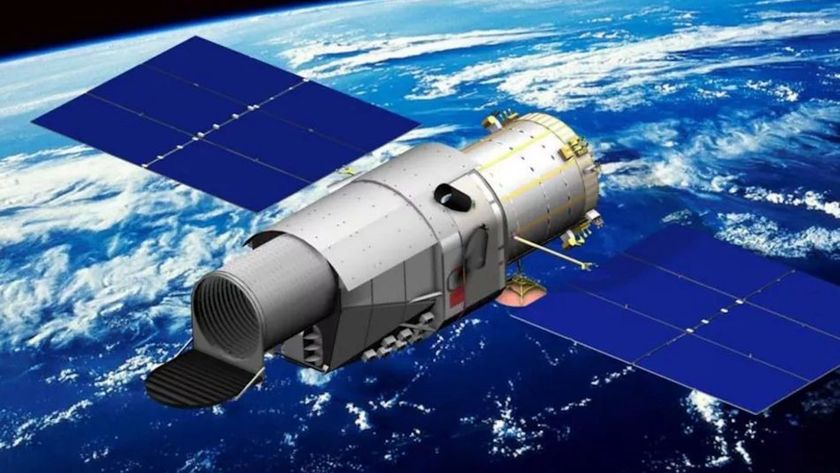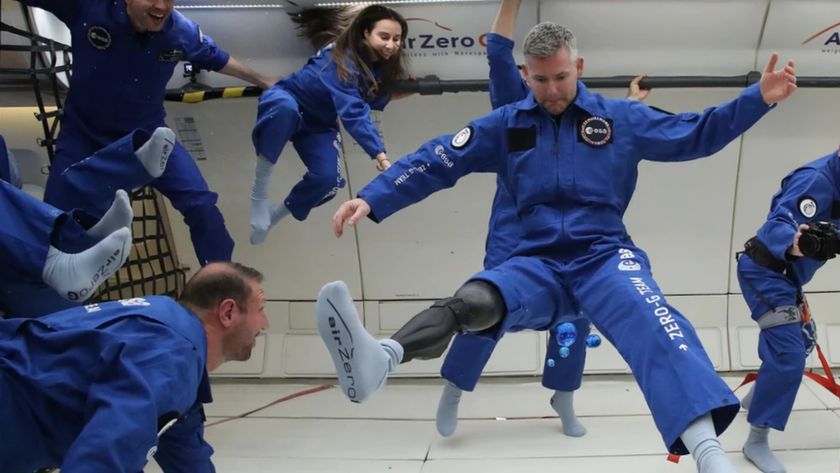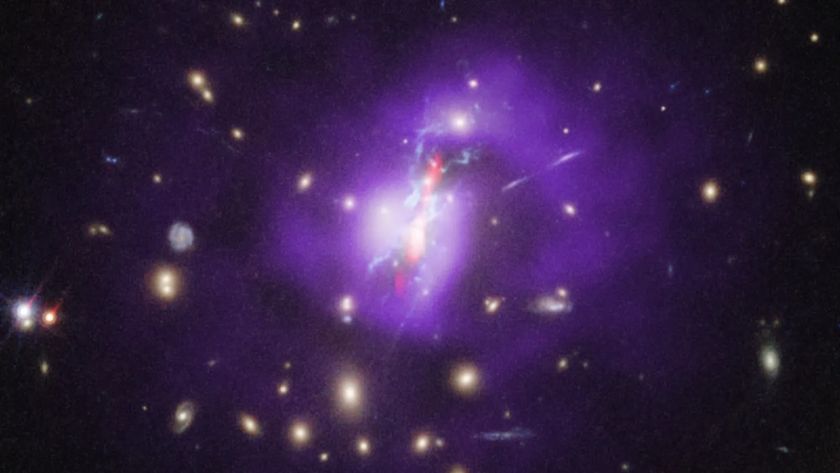Weather Outlook for Tomorow's Shuttle Launch Worsens
CAPE CANAVERAL, Fla. — Tomorrow's launch of the space shuttle Atlantis has a 70 percent chance of getting rained out, NASA mission managers said this morning.
A cold front moving across the U.S. this week unleashed dozens of tornadoes in the mid-South late Tuesday evening and continues to churn up thunderstorms. NASA doesn't expect a twister to botch their 2:45 p.m. EST (1945 GMT) launch opportunity on Thursday, but the threat of a thunderstorm, showers or thick cloud cover has lowered launch expectations from 40 percent to 30 percent.
"I wish I had a better weather report for tomorrow," said Kathy Winters, a shuttle weather officer here at Kennedy Space Center (KSC).
Jeff Spaulding, NASA test director, said the best case scenario is if inclement conditions suddenly clear up before launch time.
"We always hope for that," Spaulding said. "As we all know, weather in Florida changes very rapidly. Things may improve or improve enough to get us the ability to get off the ground. The worst case would be if — we'd have to try a different day."
Showers concern NASA because rain can damage the thermal protection shield of Atlantis during its high-speed launch. Heavy cloud cover is also problematic, Winters noted, because visibility of the shuttle as it launches can be obscured and pose a threat to public safety.
Should unfavorable conditions push the agency to scrub its launch in the early tomorrow morning, mission managers will aim for a 2:19 p.m. EST (1919 GMT) attempt on Friday. The chance of getting Atlantis into orbit then has also been lowered, from 80 percent to 60 percent, because of the potential for lingering rain showers.
Sign up for the Live Science daily newsletter now
Get the world’s most fascinating discoveries delivered straight to your inbox.
As NASA crosses its fingers for a break in bad weather tomorrow, technicians continue to prepare Atlantis for its big moment.
The 100-ton orbiter's power-producing fuel cells have been filled and will be activated later this evening, following the retraction of launch Pad 39A's 13-storyrotating service structure (RSS). The moveable scaffolding helps technicians service and inspect vital areas of the space shuttle after it is rolled out to the launch pad. Once the RSS is rolled back, it will reveal the freshly prepared Atlantis spacecraft.
The seven astronauts of the STS-122 mission have also been making final preparations for their space shot.
The 11-day mission, led by Navy captain Stephen Frick, is slated to deliver the European Space Agency's (ESA) 10.3-ton Columbus laboratory to the International Space Station (ISS). Pilot Alan Poindexter, mission specialists Leland Melvin, Rex Walheim and Stanley Love, and ESA astronauts Leopold Eyharts and Hans Schlegel will join Frick on the mission.
NASA will broadcast Atlantis' STS-122 mission live on NASA TV. Click here for SPACE.com's STS-122 mission coverage and NASA TV feed.



